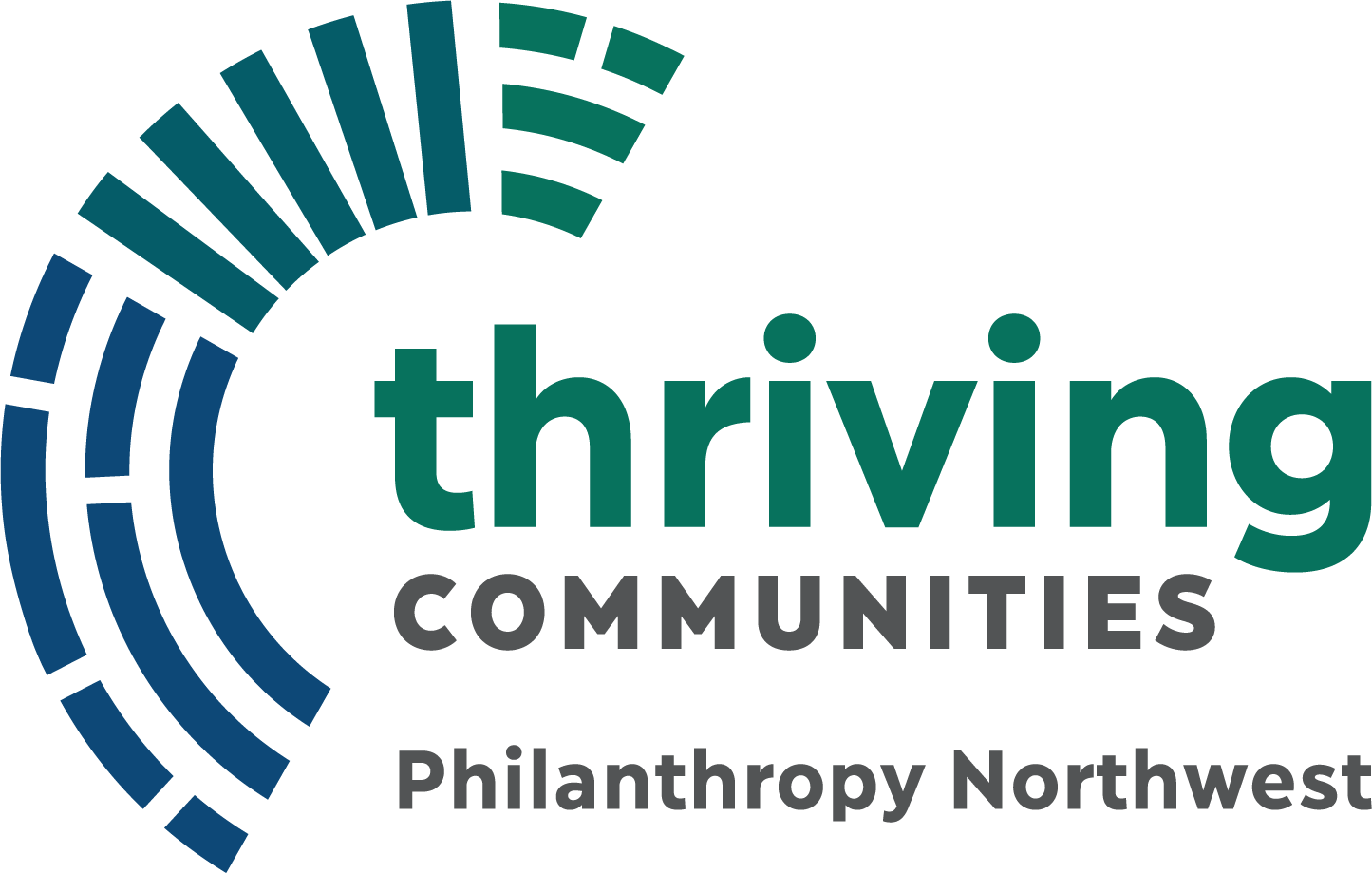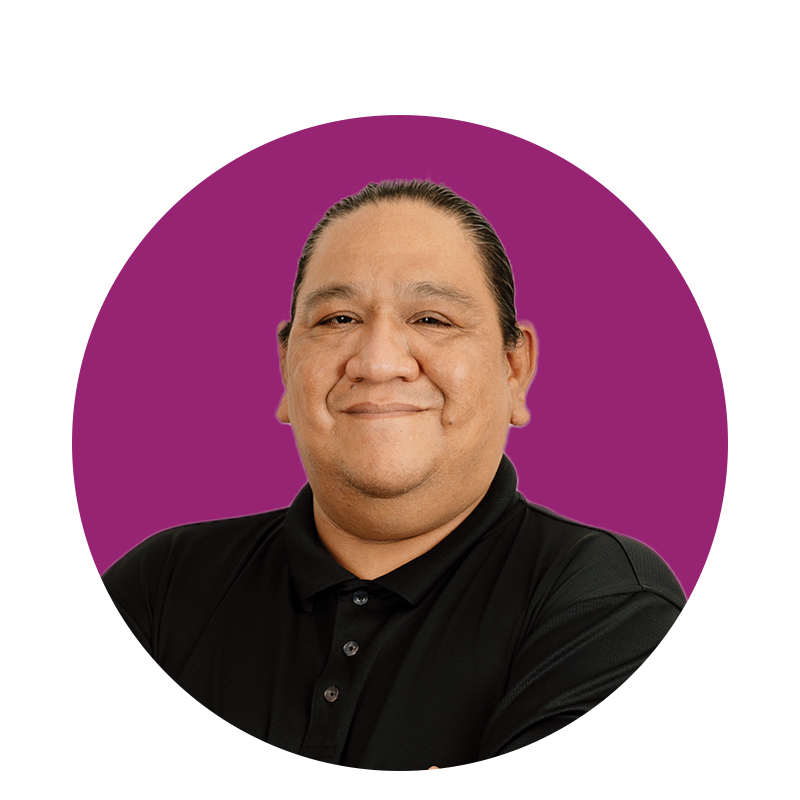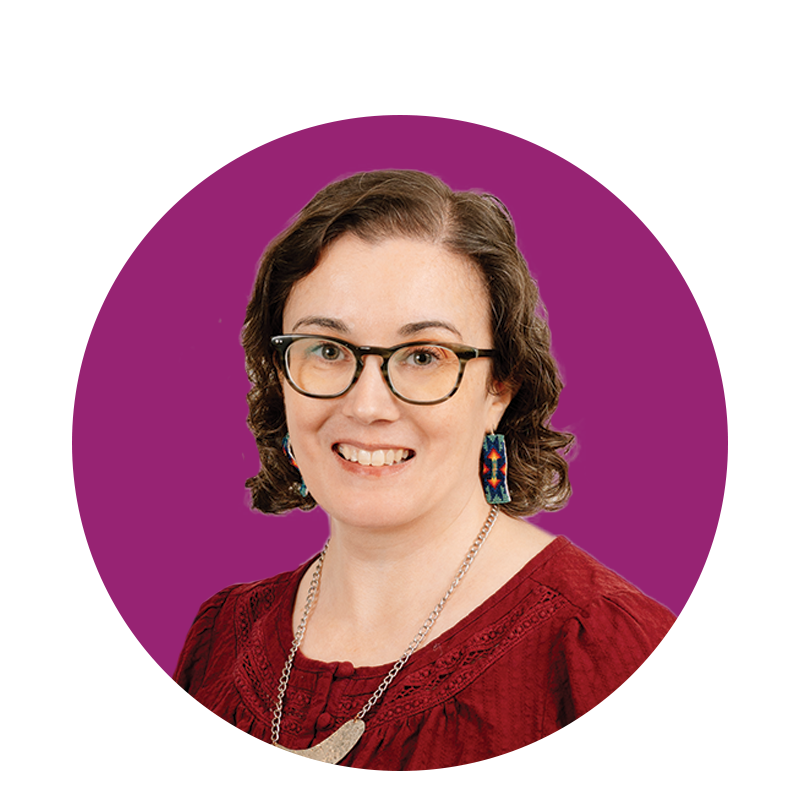 Below you will find answers to frequently asked questions about the Thriving Communities grants. Click on the links below to navigate through this page and find the answers to the questions you have.
Below you will find answers to frequently asked questions about the Thriving Communities grants. Click on the links below to navigate through this page and find the answers to the questions you have.
Definitions
What is “environmental justice”?
Environmental justice, as defined by the EPA, is the fair treatment and meaningful involvement of all people regardless of race, color, national origin or income with respect to the development, implementation and enforcement of environmental laws, regulations and policies. Fair treatment means that no one group of people, including racial, ethnic or socioeconomic groups, should bear a disproportionate share of the negative environmental consequences resulting from industrial, municipal and commercial operations or the execution of federal, state, local and tribal environmental programs and policies. Meaningful involvement means people have an opportunity to participate in decision-making that may affect their environment or health.
A combination of environmental risks and social inequities can create a disproportionate impact on some communities that hinders optimal health. Environmental justice is important to ensure that all people have the right to live in a clean and healthy environment.
What is considered a “disadvantaged” community?
Philanthropy Northwest is using EPA’s definition of disadvantaged communities, which are “communities that are underserved and overburdened” by adverse environmental impacts. These communities may be experiencing challenges in areas such as climate change, energy, health, housing, legacy pollution, transportation, water and wastewater, or workforce development, and in many cases have endured decades of underinvestment.
For the Thriving Communities Grantmaking Program, the EPA's Inflation Reduction Act (IRA) Disadvantaged Communities map identifies census tracts that are disadvantaged (defined through various criteria as overburdened and underserved). Projects funded through this program should directly benefit a community that is considered disadvantaged by the EPA mapping tool. Applicants will be asked to confirm that their project will benefit a designated disadvantaged community using the map.
Can a project be eligible if it does not fall within a disadvantaged community defined by the EPA mapping tool?
A project can be eligible that does not fall within the mapping tool mentioned above. It will be evaluated on its justification for how it will benefit a community that is considered disadvantaged.
Can organizations that are not led by a disadvantaged community, but work directly with disadvantaged communities, apply for a grant?
Yes. Our application provides an opportunity for organizations to detail their history with the community they intend to serve as well as provide information on any projects/consortia related to the project.
Questions About the Funding Opportunity
What types of organizations and activities are eligible for this funding opportunity?
Eligible Subrecipients
- Nonprofit organizations
- Philanthropic and civic organizations with nonprofit status
- Tribal governments (both federally recognized and state-recognized) and intertribal consortia (i.e., a partnership between two or more tribes that work together to achieve a common objective)
- Native American organizations (includes Indian groups, cooperatives, nonprofit corporations, partnerships and associations that have the authority to enter into legally binding agreements)
- Local governments: counties, boroughs, municipalities and cities
- Institutions of higher education
Eligible Activities*
- Air quality and asthma
- Fenceline air quality monitoring
- Monitoring of effluent discharges from industrial facilities
- Water quality and sampling
- Small cleanup projects
- Improving food access to reduce vehicle miles traveled
- Stormwater issues and green infrastructure
- Lead and asbestos contamination
- Pesticides and other toxic substances
- Healthy homes that are energy/water use efficient and not subject to indoor air pollution
- Illegal dumping activities, such as education, outreach and small-scale clean-ups
- Emergency preparedness and disaster resiliency
- Environmental job training for occupations that reduce greenhouse gases and other air pollutants
- Environmental justice training for youth
How do I know if I’m ineligible?
Ineligible subrecipients include individuals, for-profit businesses and state governments. Ineligible activities include lobbying, legal services or representation, travel for federal employees or other unallowable costs. If you have questions about eligibility, please contact us at thrivingcommunities@philanthropynw.org.
What grant types and amounts will be awarded?
There are three types of grants that range from up to $150,000 to up to $350,000, depending on the focus of your organizational priorities.
- Development Projects (Type 3) for up to $350,000 (2-year project period): Grants for those who already have a strong understanding of the local environmental and/or public health issues; have already formulated a community-wide plan addressing those issues; and/or are ready to implement the project on the ground.
- Planning Projects (Type 2) for up to $250,000 (1- to 2-year project period): Grants for those who already have a strong understanding of the local environmental and/or public health issues and are ready to formulate a community-wide plan to address those issues.
- Assessment Projects (Type 1) for up to $150,000 (1-year project period): Grants focused on gathering information, assessing and understanding the problem(s) before developing a plan.
My organization supports racial and social equity, but that is not our primary focus. Can we still apply?
Yes. While we recognize there are many ways an organization can promote racial, social and economic justice, the goal of this Thriving Communities grants program is to distribute resources to communities that have faced chronic underinvestment due to disproportionate and adverse environmental and health effects. To that end, your application should describe your organization's strategies to reach and support these communities.
Is there a time limit in which to “spend-down" the awarded funds?
Grants are expected to be completed within the following timeframes. Time extensions will not be available.
- Development grants are for up to two years from the date of award.
- Planning grants are for one to two years from the date of the award.
- Assessment grants are for up to one year from the date of award.
Can I apply for more than one “type” of grant?
There is no limit to the number of applications an organization submits. However, an organization can only receive one grant from this grantmaking program.
If my proposal is not selected for one grant type, can I apply for another grant type with the same project?
Yes, you can resubmit in another period for a different type so long as the grant project, budget and workplan are relevant and the time to complete the work is feasible.
Can an applicant receive funding from multiple EPA grant types (e.g., the Community Change grant, or other)? Or does receiving any other EPA grant at all make the applicant no longer eligible?
Organizations receiving funding from Community Change or other EPA programs are eligible to apply for Thriving Communities as long as the request is for a separate project or there is clear distinction of which activities of the same project are funded by each source.
Is there any priority given to projects that preference programmatic expenses as compared to staffing costs, or could a grant largely pay for increased staff capacity to accomplish grant goals?
Project budgets should be reasonable, allowable and reflective of the workplan. No preference will be given to applications that prioritize one type of expense over another. Philanthropy Northwest values the fair compensation of staff who engage in mission-driven work and knows that securing funding to do so can be a challenge.
Can I apply if I am outside of Region 10 but my work is primarily based in Region 10?
If you are an organization that might be headquartered outside of Region 10 but you have existing work within Region 10, you are eligible to apply. In the application, you'll be asked to describe your organization’s historical relationship with the project community.
I am planning to use a fiscal sponsor, is that allowed?
Yes, with the exception that for-profits using fiscal sponsors are not eligible for this grantmaking program. For an overview of fiscal sponsorship, click here. Please note that each fiscal sponsor can be awarded no more than five grants, with a total amount of no more than $1 million in grant funds from this program. Please ensure that your fiscal sponsor is aware of your application. If a fiscal agent applies with their own project and is awarded, then that counts toward the five-grant maximum. Their organization’s information (including EIN number) will be required to complete your registration.
Can a fiscal sponsor receive more than one grant?
Organizations serving as fiscal sponsors can receive up to five individual awards, with a maximum of $1 million in funding for the course of the program. This cap includes any prime awards to the fiscal sponsor organization. For an overview of fiscal sponsorship, click here.
Is there an indirect rate cap?
If your organization has an existing Negotiated Indirect Cost Rate Agreement (NICRA) with any federal agency, your budget can include that amount. If you do not have a NICRA there is a 15% maximum indirect cost rate.
Will current programs be eligible or must the program be new?
Current programs and projects are eligible to apply for funding.
Does this grantmaking program fund capital support?
Yes, if directly related to specific programmatic work. Development grants can support the following types of capital projects:
- Blueprints for construction or clean-up projects, schematics and technical development
- Work to get permits in place directly related to an environmental project
- Smaller land purchases and acquisitions that require less than half of the total amount of the grant
- Implementation of project plans
Note: This list is for illustrative purposes only and is not all-inclusive.
Will match funding be required?
No, you do not need to secure funding from additional sources to receive funding for this opportunity.
I'm not sure if my application includes human subjects research (HSR). How can I find out?
Philanthropy Northwest is not accepting applications that require HSR. To find out more whether your work will involve conducting human subjects research, click here.
Is funding coming from the EPA or Philanthropy Northwest?
Philanthropy Northwest is administering the grantmaking program. The goal of this program is to reduce barriers organizations may face when applying for federal funding. Philanthropy Northwest is serving as a pass-through grantmaker for EPA, and we have developed a simplified application and grantmaking process. Philanthropy Northwest and its partners will help guide you if you decide to apply. If you have questions, please contact us at thrivingcommunities@philanthropynw.org.
I know I will have questions along the way. Will there be time to meet with program officers?
Philanthropy Northwest will be hosting a series of webinars during each application period and hosting office hours. Program officers are also available for individual assistance. To schedule a meeting with a program officer, see their contact info below.
Questions About the Grant Application
When can I apply? When are applications due? When are grants awarded?
Grant applications will be accepted on a rolling basis for the window in which that grant type is open, however, each round has a set due date to facilitate the grant review process in a fair and timely manner. Please note that all grants must be complete (all work done and funds spent) by July 31, 2027. Below is a tentative timeline:
Development (Type 3) – Up to $350,000
| Round | Application Opens | Application Closes | Notice of Selection |
|---|---|---|---|
| Round 1 | October 10, 2024 | December 15, 2024 | March 2025 |
| Round 2 | January 1, 2025 | February 28, 2025 | May 2025 |
Planning (Type 2) – Up to $250,000
| Round | Application Opens | Application Closes | Notice of Selection |
|---|---|---|---|
| Round 2 | January 1, 2025 | February 28, 2025 | May 2025 |
| Round 3 | February 1, 2025 | March 31, 2025 | June 2025 |
Assessment (Type 1) – Up to $150,000
| Round | Application Opens | Application Closes | Notice of Selection |
|---|---|---|---|
| Round 2 | January 1, 2025 | February 28, 2025 | May 2025 |
| Round 3 | February 1, 2025 | March 31, 2025 | June 2025 |
| Round 4 | March 1, 2025 | April 30, 2025 | July 2025 |
Will the applications be translated in any languages other than English?
Applications are avalable in Cambodian Khmer, Chinese, Korean, Lao, Russian, Somali, Spanish and Vietnamese. Please contact your program officer as soon as possible to obtain a translated application or if you have other language needs.
Can I send in a hard copy of the application, or does it have to be online?
Philanthropy Northwest strongly encourages organizations to use the online portal. If your organization is unable to submit via the online portal, please contact your program officer to discuss as soon as possible. Their information is available on our website here.
Who is eligible for the noncompetitive award process?
A limited number of $75,000 non-competitive fixed-amount grants will be available for community-based organizations that are severely capacity-constrained. Once finalized, Philanthropy Northwest will post grant receipients on our website. For more information, please contact thrivingcommunities@philanthropynw.org.
Can multiple organizations partner for one grant?
Yes, as long as one organization serves as the main applicant, which includes maintaining fiscal responsibility for the grant and managing grant reporting. The application, workplan and budget should clarify the roles and relationships of the various organizations along with the breakdown of funding.
Will there be a preference for partnerships?
Partnerships are not a requirement for this funding opportunity. If applicants decide they want to enter a partnership for this grant, applications on behalf of partnerships should have a project plan that is clear about the roles partners might play. Specific roles for financial reporting and compliance will be particularly important to detail.
What is a Quality Assurance Project Plan (QAPP)? Do we need one? Where can I get assistance?
If your project mentions "collecting, identifying, evaluating, testing, sampling, measuring or any other kind of scientific processes,” a QAPP may be required. The costs for a QAPP may be paid for by this grant. An EPA-approved QAPP must be in place before any scientific work can take place. A checklist to determine whether your project likely needs a QAPP can be found here. Additional information on QAPPs and templates can be found from EPA here. Please continue to visit this website for more information including webinars, office hours and examples of QAPPs in the near future.
If my organization applies and isn’t selected for a grant, can we apply again?
Yes, if the Request for Applications (RFA) is still open, and funds are available for the applicant's grant type of interest, applicants are allowed to resubmit a declined project. Philanthropy Northwest’s Thriving Communities team will be able to provide feedback to applicants, if requested.
Questions About the Online Grant Portal
How do I create a Fluxx account if I don’t have one?
Register your organization here: https://philanthropynorthwest.fluxx.io/user_sessions/new
You will answer one question and your application will need to be approved before you can move to the next step. Please expect this approvals process to take 24-48 hours. Once approved, you will receive an email and you can follow the directions from there.
My username and/or password aren’t working. What now?
Please contact us at FluxxTA@philanthropynw.org with any questions.
Can I save my application and return to it later?
Yes, please make sure to press “save” frequently to ensure your input is saved.
I’m still stuck, how do I get help?
Please contact us at FluxxTA@philanthropynw.org with any questions.
Questions About the Peer Review Application
Do I need an environmental background to participate as a peer reviewer?
No, you do not need a background in environmental issues to participate as peer reviewer.
Can I apply for the Peer Review Group if I am affiliated with an organization that is applying for a grant?
If you are a staff member, board member, volunteer, or a consultant with an organization or group applying for a grant, you would not be eligible to be a peer reviewer due to a conflict of interest.
If you are applying for a Type 3 grant, can you still apply to be a peer reviewer for Type 1 and Type 2?
You cannot be a peer reviewer for any type of grant if you are applying or plan to apply for a grant with the Thriving Communities Program.
Where can I access the peer review application?
You can access the peer review application here.
How long do I serve on the Peer Review Group?
You can serve once or for multiple rounds, but we hope peer reviewers will want to serve more than once. Each round averages about two months with around 25-27 hours of work. The number of hours could change depending on the number of applications Philanthropy Northwest receives.
Program Officer Contacts
If you have questions or would like to discuss your project plans, please reach out directly to your program officer:
For Alaska or Oregon, contact Jacquie Braden.
Location: Anchorage, Alaska
Time zone: Alaska
Phone: 907-318-2923

For Idaho or Washington, contact Jason Pretty Boy.
Location: Boise, Idaho
Time zone: Mountain
Phone: 206-558-5136

For tribes in any area, contact Melissa Koepp.
Location: Rainier, Washington
Time zone: Pacific
Phone: 206-558-5367

Philanthropy Northwest is committed to providing an inclusive and welcoming environment for all members of our community. We do not discriminate on the basis of race, color, national origin, sex, age, or disability in any of our programs or activities.
In accordance with federal and state laws, and to ensure that we continue to uphold these values, Philanthropy Northwest has designated a civil rights coordinator. If you have any questions or concerns regarding our non-discrimination policies, or if you need to file a complaint, please contact: Lyn Hunter at CivilRightsCoordinator@philanthropynw.org or mail Lyn Hunter, Thriving Communities, Philanthropy Northwest, 600 University St., Suite 1725, Seattle, WA 98101.